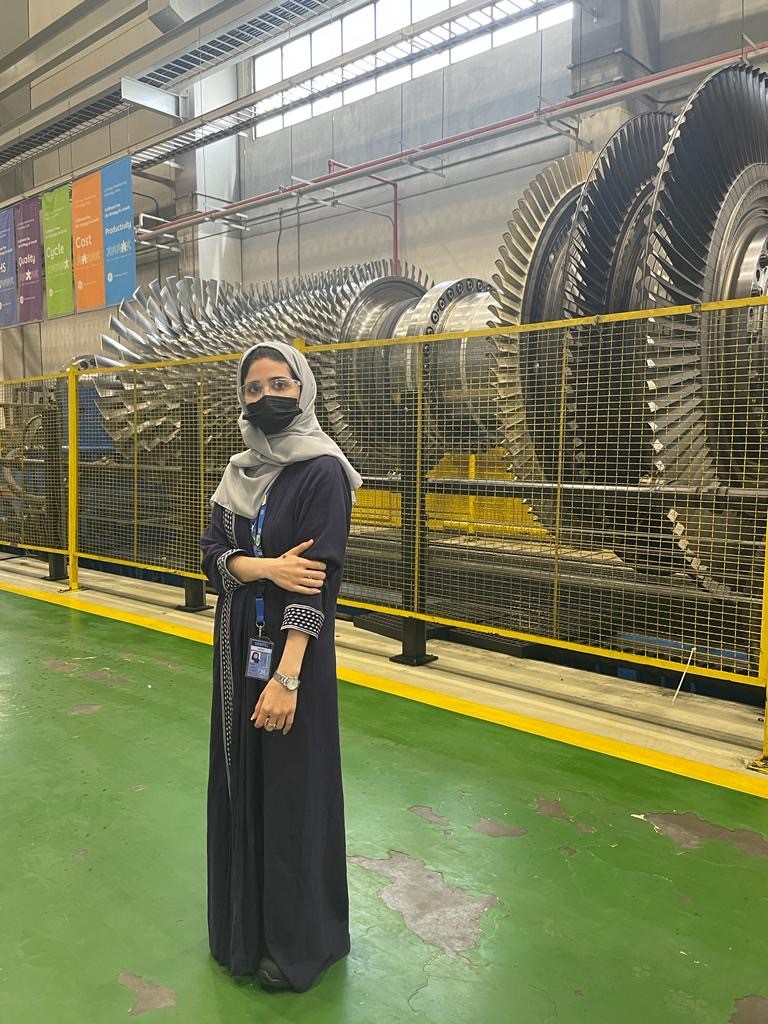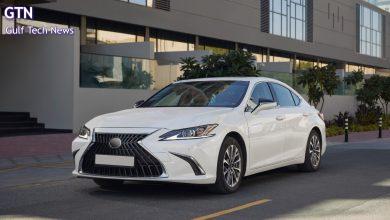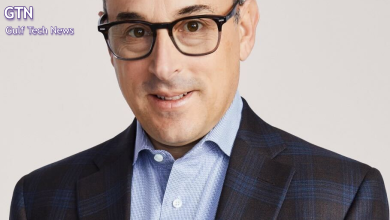How women in the Saudi workforce are driving change

In recent years, studies show an upward trend in women joining the workforce in the Kingdom of Saudi Arabia. This is due to new reforms that the Crown Prince Muhammad Bin Salman is implementing, which aim to increase female participation in the Saudi workforce to 30% by 2030. Only last month, a job advert to recruit 30 female train drivers in Saudi Arabia attracted 28,000 applicants, showing the diverse opportunities available to women in the Kingdom today.
In the new Saudi economy, women are making notable contributions in previously male-dominated industries such as energy, finance, aviation and healthcare. Although we have seen women in the Saudi workforce increasing over the last few years, two female HR employees have been breaking barriers over the years, sharing their personal and professional experiences that have led them to where they are today.
Breaking barriers to changing culture in a corporate environment
Growing up in Saudi Arabia, Sarah Kanadiley had a strong desire to be part of the country’s growing female workforce, even though she knew very few women who did so, and almost none in a corporate environment.
“I always imagined myself wearing a suit, going to an office, and working for a global company, even though it was not easy to do so at that time,” said Sarah, who today is a Human Resources (HR) Specialist at the GE Manufacturing and Technology Center (GEMTEC) in Dammam.
After an on-the-job assignment as part of her university degree requirement in the HR department at the GEMTEC facility, Sarah recognized the opportunity to make a difference by pursuing a career in HR.
Her primary assignment was to develop an evaluation system for GEMTEC’s employees who provide much of the hands-on maintenance, repair and production work at the facility. “This was the motivation for me. If I, even as a student, could contribute to the organization in this way, it opened up the numerous possibilities of HR for me.”
The GEMTEC campus includes a Service and Repairs Center for gas turbines; a Monitoring & Diagnostics Center for the remote monitoring of power generation assets; GE’s Hot & Harsh R&D Center; and GE Saudi Advanced Turbines (GESAT), a joint investment by Dussur and GE to manufacture heavy duty gas turbines and components in the Kingdom. Operating for over 10 years now, the GEMTEC campus has served more than 70 customers from over 40 countries already.
After graduation, Sarah was selected for a six-month Early Career Trainee program that offered recent graduates practical work experience with GE. As a trainee, she continued to work in the HR department at GEMTEC.
When her program concluded, Sarah, who earned a BA in Management Information Systems (MIS) from Imam Abdulrahman Bin Faisal University in Dammam, worked briefly in her family’s business. But she soon realized that she enjoyed working in a more industrial setting, so she applied and was hired by a Saudi construction equipment company, where she launched the company’s HR function in Dammam.
“That was one of my biggest challenges. I was working on my own, building the department from scratch.”
She found that she enjoyed working with the technicians and other hourly workers in the workshops and saw an opportunity to gain valuable experience with such a workforce, given that they came from all types of backgrounds and education levels.
During this time, she also helped to change the company culture, as the first woman to work at the facility. “In the beginning, it was very difficult for the workshop employees to talk with me; they wouldn’t even look me in the face. But I would be in my office every day, and eventually, they started to share their concerns or tell me how we might improve the way we work. This was remarkable and something I’m very proud of. I helped to change their minds, and eventually, they would come into my office, grab a candy from the chocolate jar sitting on my desk, and talk about their concerns. That really made my day.”
When GEMTEC advertised an opening for her current role, Sarah immediately applied and was hired.
“I really wanted this job so that I would be able to work in the kind of environment offered by GE. I consider myself very lucky to be able to do so,” she says, pointing to the professionalism among colleagues.
“As well, GE places safety as the number one priority, and leaders are really understanding. Whether involving women or men, there’s no bias, and overall, it’s a great work environment that’s also flexible.”
That said, Sarah attributes her success, even so early in her career, to loving her work. “I make it my first priority. Yes, I have a family and am committed to them, but by working hard, I am also able to support my family,” something important, given that she is raising a five-year-old son.
“I love what I do, and when you love what you do, even if you’re tired or face obstacles, you’re able to continue working until you find a solution and achieve your goals.”
At GEMTEC, Sarah enjoys working with technicians and workers. “These employees are a mix of Saudis and expatriates, with as many as a dozen nationalities represented on the shop floor,” she says.
“It is part of what I love about this kind of environment. It doesn’t just add to my professional experience, but also to me as a person. I love learning about other cultures, interacting with people from other cultures. I bring this home, and can teach my son to respect others, to be open-minded to other cultures and religions, and to learn how to interact with other people.”
As the first woman in her family to work for a multinational company in an industrial setting, Sarah’s advice to young women, including her nieces and younger sister, is to always try. Saudi Arabia today is welcoming women in many professions, and she says, “It’s important for women to never be afraid to make mistakes because trying is the best way to learn. Whether in your personal or professional life, always be open to new experiences.”
‘Pursue the Life You Make for Yourself, Not What Fate Gives You’
Fatima Al Bahrani, an HR manager with GE in Saudi Arabia, is the first woman in her family to work for an international company, a success she attributes in large part to the inspiration she took from the determination of her mother and grandmother.
“I see how strong they were to make the most of the opportunities open to them at their time, where my mother was a kindergarten teacher, and my grandmother could read but not write. A lot of that is in me, and it’s a heritage that I give my [21-month-old] daughter – having the strength to overcome obstacles, the courage to believe in yourself, and the ability to see the good in people. Those go a long way and always need to be in our hearts and in our character.”
Al Bahrani, People Operations Manager, Service Delivery, for Saudi Arabia and Bahrain at GE, demonstrated her own resolve when still in high school. She wasn’t accepted into the college and degree program of her choice. Rather than matriculate to the college that had accepted her, she pushed back. “I didn’t want to pursue a life that’s not for me. So, I took a risk by withdrawing from the college that I was accepted in, and waited.”
“Sometimes we have to fight for what we want, and pursue the life you make for yourself, not what fate gives you.”
She enrolled in a private institute where she earned a diploma, before reapplying and getting accepted at a university where she could earn the Management Information Systems (MIS) degree she wanted.
“My family was supportive, helping me to register at the institute. That support helped give me the strength to pursue this. I’m proud of myself and proud of the people around me, like my family, who supported me to make that decision.”
She earned her bachelor’s degree from Jubail University College, and later, while working at her previous employer, earned an MBA from the Saudi Electronic University in collaboration with Colorado University.
Fatima was eager to study management information systems because she liked how the degree blended two main professional interests: technology and business.
It also opened the way for her to pursue her other passion: people, who are the reason she has been in the human resources field for the last nine years of her career.
“I definitely wanted something with a connection to people. I’ve always wanted to know people more, understand how they behave. In HR, I meet lots of people from all the businesses, from management, from different perspectives and backgrounds, since working for an international organization.”
This interaction with people gives her work a clear purpose.
“Every day, people come to us for assistance. Every day, I contribute positively to someone’s life. It’s been a successful day if I think back on the day, and I’ve met new people and made their lives easier.”
As much as she is a people person, she also likes technology.
“I’m always thinking, ‘Why do it this way and not another way?’ Technology can help us to do processes differently, more quickly, which means we can focus more on the human part. In that way, technology can empower us in other areas where we are interacting with people.
“Others look at using technology as losing the human touch, but I see it as giving us an advantage to give us more time for the human touch!”
Beyond pursuing her interests and drawing on the inspiration of female members of her family, Al Bahrani also attributes her success to pushing herself out of her comfort zone.
This is what she would recommend to young people and especially women.
“You have to be courageous, bold and get out of your comfort zone.”
“I tell my team members: Don’t expect the team leader to present the idea in a meeting. If you worked on it, speak about it. Nobody will be able to explain it better than the one who did it.”
“It’s also about giving credit to the right person and encouraging them to show who they are, what they are capable of doing. This helps them to progress and achieve more successes.”
“My advice: Be proud. People will notice you and give you a chance.”
This is particularly the case for women in Saudi Arabia today, she says.
“We are way past the idea of male and female. Now, you can do whatever you want, as long as you have passion and determination. We lived in an era where there were bigger obstacles, but now, the country, the companies and the workplaces are ready to have all this female talent.
“These days, it’s about who you are and what you want to do. There are no obstacles to block your potential. Yes, you will have your own obstacles to fight, but the world is ready for you!”
In fact, one of Al Bahrani’s proudest moments was when she was on maternity leave at GE and learned from colleagues that there was a vacancy for the role she now holds. At first, she hesitated, but then applied. “I was interviewed while on maternity leave, with my baby on my lap. But they saw the potential I could bring,” and she was offered the job.
“I’m proud to be from this region and proud to be part of a company that celebrates women and sees how important it is to balance life and the professional world.”






